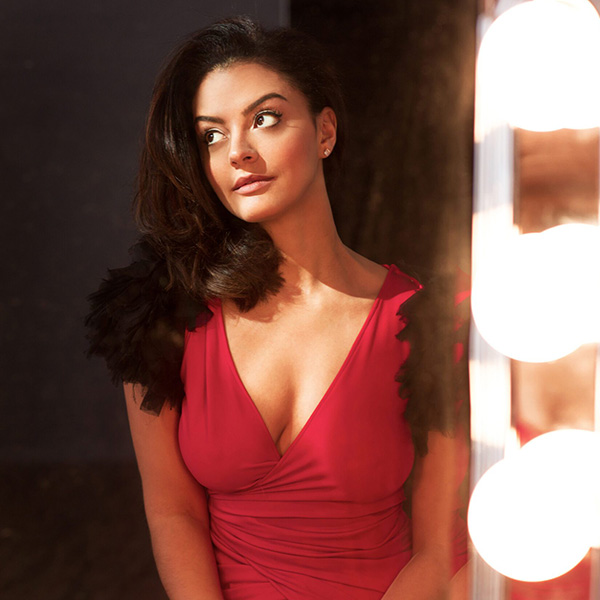In a pop music landscape defined by fleeting trends and viral moments, few artists can claim the sustained relevance of David Macklovitch, BA’00, MA’03, better known to fans as Dave 1, the guitarist and vocalist for electro-funk duo Chromeo.
Chromeo is currently on tour in support of their most recent album, Adult Contemporary, which peaked at number 21 on Billboard’s U.S. dance chart.
For over two decades, Macklovitch and his creative partner Patrick Gemayel—aka P-Thugg, whose synths and vocoder complete Chromeo’s signature sound—have carved a niche by reviving 1980s funk for 21st-century dance floors.
If the Montreal duo’s band hadn’t caught on, Macklovitch might be at the front of a classroom right now, teaching French literature at a university.
His academic path began at McGill in 1997 in what was then known as the Department of French Language and Literature. He earned a BA and then a master’s degree. Accepted into PhD programs at Harvard, Princeton, Yale, and Columbia, he chose Columbia, where he became a doctoral candidate and teaching fellow.
Though Macklovitch enjoyed academic life and still misses teaching, his music career soon became his true calling.
As a McGill student, Macklovitch was immersed in Montreal’s underground music scene. By day, he co-ran Science, a hip-hop record store in the same building as DNA Records, owned by Tiga, a pioneering DJ whose influence extended far beyond Montreal.
By night, Macklovitch produced tracks for top French and English hip-hop acts, including Sans Pression and Shades of Culture, while running Audio Research, the record label he co-founded with his younger brother, DJ A-Trak (former McGill science student Alain Macklovitch).
It was Tiga who recognized Macklovitch’s potential outside of hip-hop. “Tiga was like, ‘Man, I see all these people come into the store for hip-hop records you produced. Would you be interested in doing something outside of hip-hop on my label?’” Macklovitch recalls.
Though largely unfamiliar with electronic music, the opportunity intrigued him. “I was just a hip-hop kid. I liked old records—funk, soul, rock—but I wasn’t well-versed in house or any kind of electronic music.”
This opportunity opened a new path for Macklovitch, ultimately leading to the formation of Chromeo. “Chromeo was an idea before there was music associated with it,” he explains.
“We knew we were onto something from the beginning. We just stuck to our guns.”
Chromeo’s David Macklovitch (aka Dave 1)
The duo’s early years were spent discovering their aesthetic and mission. By experimenting, recording demos and collaborating with more experienced talents, they honed a sound rooted in 1980s funk, which, at the time, was underappreciated.
Chromeo’s decision to draw from the sounds of artists like Rick James and Cameo was driven by a deep respect for the musicianship of the era.
“A lot of people were starting to make 80s-influenced records, but they weren’t doing the good stuff,” says Macklovitch.
Chromeo’s approach, Macklovitch says, was grounded in a genuine love for the genre and a desire to challenge cultural biases.
Macklovitch credits his academic training at McGill for influencing his approach to the music Chromeo embraced.
“McGill taught me semiotics. Once you understand the world in terms of sign systems, everything makes sense,” he says. This analytical lens helped him view Chromeo not just as a musical project but as a cultural statement – a mission to reclaim and reframe 1980s funk for a new generation.
While Chromeo’s 2004 debut album She’s in Control didn’t immediately catapult them to fame, it laid the groundwork for a long and steady career.
Their third release, Business Casual, cemented their international status and their reputation as purveyors of an elegant brand of cool.
As their sound evolved, so did their audience. Chromeo travelled the world, sharing stages with hugely popular acts including the Beastie Boys, Kanye West and the Chemical Brothers, increasingly building their profile.
Macklovitch remains humble about their role in shaping the music landscape, acknowledging that while Chromeo helped revive 80s funk, it took artists like Bruno Mars to fully bring the sound back to the mainstream.
“We knew we were right,” Macklovitch says, “but we needed people way more talented than us to take this DNA and turn it into worldwide pop smashes.”
Chromeo’s success is a testament to their ability to stay true to their vision while adapting to a changing music industry. Now, 20 years into their career, Macklovitch and P-Thugg find themselves woven into the cultural fabric they once sought to reinterpret. Their music is no longer seen as a quirky throwback but as a lasting contribution to pop’s ongoing evolution.
This longevity isn’t lost on Macklovitch. “We’ve only had one or two top 40 songs in our entire career,” he says, “but we’re still here.”
His humility belies their accomplishments: three of Chromeo’s six albums have made the Billboard 200, and their 2018 album, Head Over Heels, earned a Grammy nomination. Chromeo has also picked up seven Juno Award nominations over the years.
Other prominent musicians certainly recognize the band’s talent – Macklovitch and P-Thugg have collaborated with the likes of Daryl Hall, Solange and (on their latest album) La Roux.
As Macklovitch reflects on Chromeo’s legacy, he demonstrates quiet confidence that his band achieved success on their terms. While they may not have reached the chart-smashing heights of some of their contemporaries – yet – Chromeo’s appeal endures because it was never about following trends, but rather built on reconceiving the past.
“We knew we were onto something from the beginning,” Macklovitch proudly affirms. “We just stuck to our guns.”


